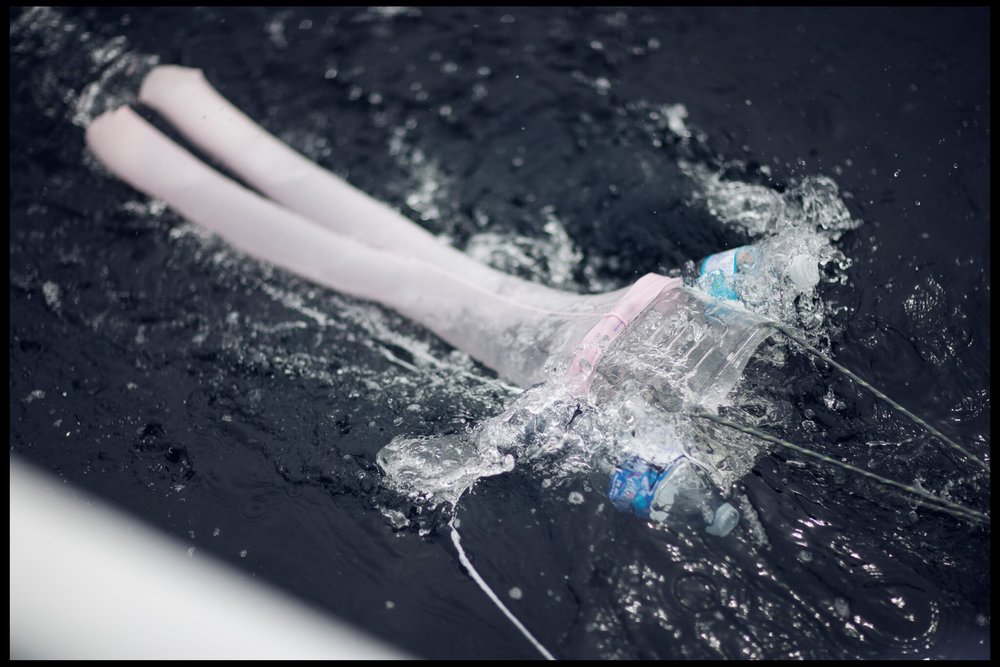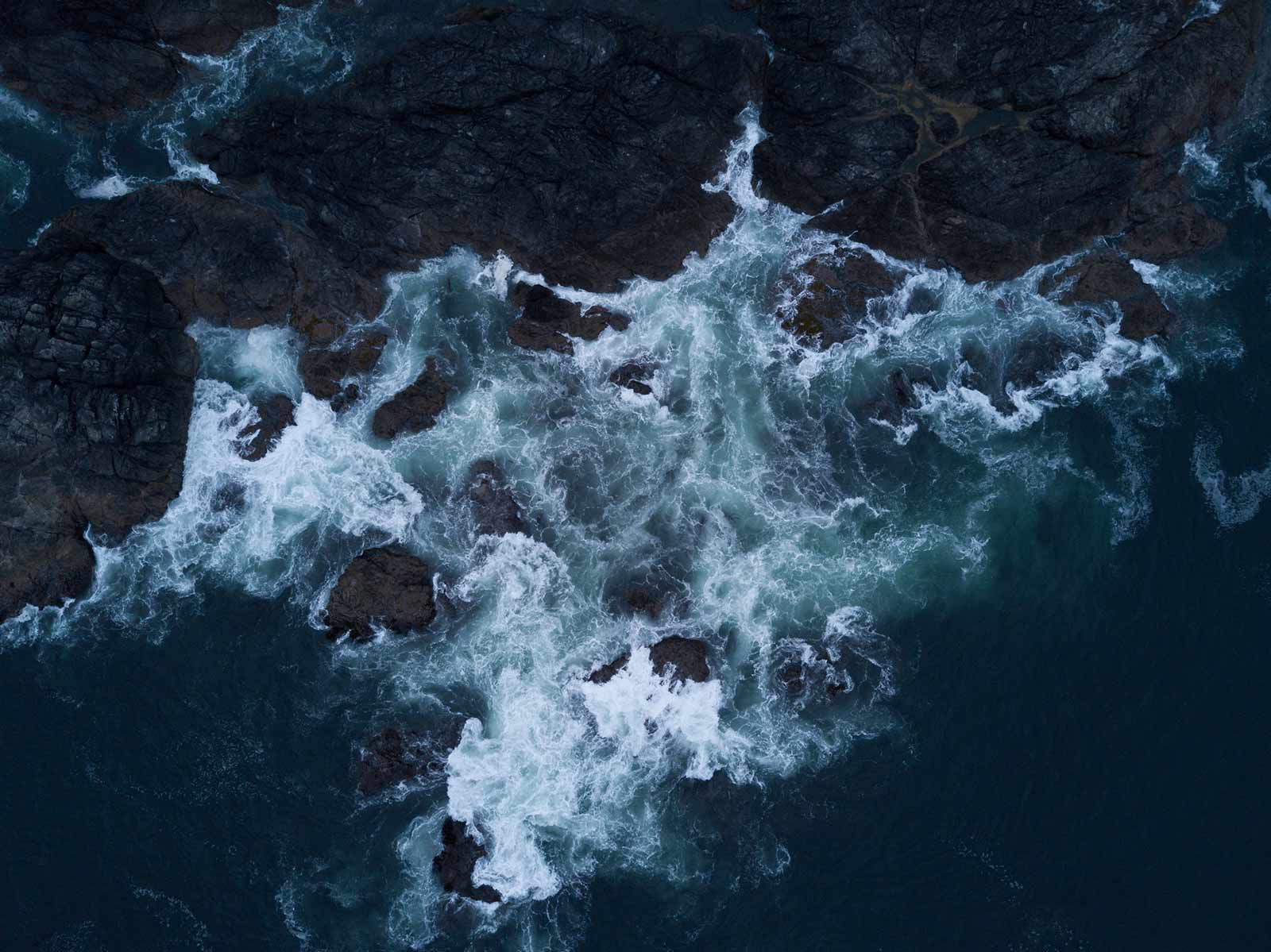Watch to see more of the BabyLegs Project story
BabyLegs is a build-it-yourself research net (trawl) for monitoring plastic pollution in surface water. The invention was created by Dr. Max Liboiron, Director of Civic Laboratory for Environmental Action Research (CLEAR) at Memorial University, who is turning the trawl into an accessible kit with an online community forum in partnership with Public Lab for Open Technology.

Created with baby’s tights, soda pop bottles, and other inexpensive and easy-to-find materials, BabyLegs can be used to trawl for floating microplastics from the surface of the water. Because most marine plastics are smaller than a grain of rice, they can be readily ingested by a wide array of marine life, including the animals we use for food. This small size also means we need special instruments to find these plastics. The scientific standard research trawl costs $3,500, while BabyLegs costs around $20 and can be built and used by people without scientific degrees and produces similar data.
This project out of the CLEAR Marine Science Lab aims to put the instructions to build, use, and analyze samples from BabyLegs in the hands of people who are concerned about plastics their food and waterways.

Public Lab for Open Technology Partnership
Public Lab for Open Technology works to “level the data playing field,” making it possible for people to issue rigorously collected, high-quality, local environmental data sets for use alongside government data for verification and advocacy. They do this by building curriculum, hardware, and software; providing space for research and development; and bringing tools to maturity, making them field ready. A BabyLegs kit was assembled and is distributed by Public Lab, which not only crowdfunds the production of the kits, but also hosts a community of practice around BabyLegs that can help people troubleshoot, share concerns, build data across local cases, and remain in contact with the scientists and technologists behind BabyLegs.
What the Project Accomplished with the Help of the Fathom Fund
The BabyLegs trawl was succesfully deployed at the Marine Institute at Holyrood, and several project team members, as well as visiting environmental staff from the Nunatsiavut Government, were trained on using it. The team also deployed the industry-standard trawl so they could compare how much plastic each picked up. The team was surprised to find the two trawls collected a similar amount. This result is statistically a normal variation, but since BabyLegs is one quarter the size of the other trawl, the team plans to retest to see if this was an anomaly.
Not only did the BabyLegs team exceed the crowdfunding portion of the project, but they have had even more public engagement with the final product. The instructions for how to build and deploy BabyLegs have been viewed hundreds of times (with many leaving comments about how they used it). Due to high demand, the BabyLegs kit is now a permanent offering on the Public Lab’s online store. The community of BabyLegs users is growing and the team continue to offer support, answering questions and giving guidance.
Project Team
Dr. Max Liboiron is the inventor of BabyLegs and an Assistant Professor in Geography at Memorial University of Newfoundland, where they direct the Civic Laboratory for Environmental Action Research (CLEAR). CLEAR develops anti-colonial methodologies and instruments in the natural sciences by grounding them in Indigenous thought to create place-based and deeply ethical scientific protocols in marine plastic pollution research. Dr. Liboiron has played leading roles in the establishment of the field of Discard Studies (the social study of waste and wasting), the Global Open Science Hardware (GOSH) movement, and is a figure in feminist science studies and justice-oriented citizen science. To date, online instruction manuals for their various citizen science tools have received over 9,000 unique hits.

Jeffrey Yoo Warren works at the Public Lab’s Providence office and helps people to simplify and refine their open hardware kits as well as supports collaborations between community members and partner organizations developing new environmental monitoring methodologies. He also leads Public Lab’s coding community and does illustration and media work, which he provided for the Kickstarter campaign.
Bronwen Densmore works at Public Lab’s Brooklyn office, and supports Public Lab’s Open Hardware community by helping to match DIY tools to environmental questions, working with open source and DIY tool developers to source and distribute new kits, and organizing workshops and site visits. She sourced the materials for the kits, and has maintained the kit store after crowdfunding.
Liboiron and Warren will maintain the online community of BabyLegs users. Densmore will manage the upkeep and distribution of kits and use of kits during workshops and site visits.



